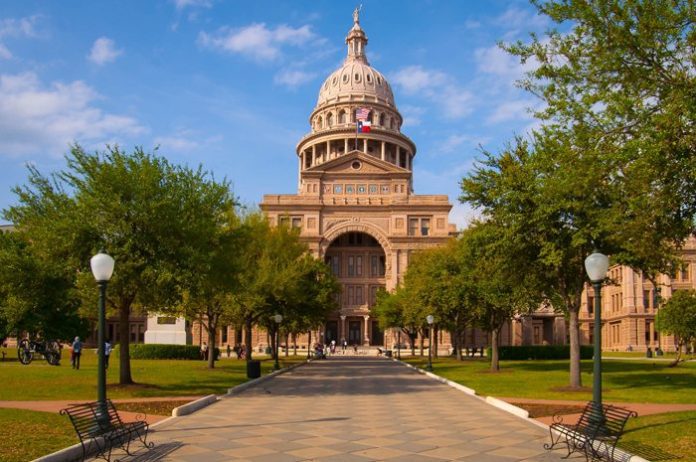Wireless carriers and their partners are telling municipalities all over the U.S. that small cells can help them create smarter cities. But the dense downtown corridors and affluent suburbs in which carriers want to build are places that city councils want to manage very carefully. When cities don’t welcome small cells into the public rights of way, the conversations often move to the state level.
State legislatures in Texas, Ohio, Florida, California, Colorado and Arizona are among those considering legislation that would limit the ability of cities to delay or deny permits to build or attach in the public rights of way. In Texas, cities might also find themselves unable to set their own rates when making contracts with wireless service providers. The annual rate would be capped at $1,000 per year per network node, and would increase with inflation each year.
Negotiations around wireless infrastructure are making their way into local headlines this year, but they are old news for wireless service providers and the companies that secure their sites and deploy their radio equipment.
SAC Wireless, a subsidiary of Nokia, works with thousands of U.S. municipalities on behalf of carriers that want to deploy wireless infrastructure. CEO Bill Koziel said the industry will welcome legislation that can increase consistency from one jurisdiction to the next.
“Like everyone, we want a streamlined, consistent process … whatever the process may be,” Koziel said. “I think any company, any carrier, any service provider, is going to look for a consistency and a regimented process that is repeatable.” Koziel said that even when processes can be repeated from one jurisdiction to the next, each situation will vary because each city’s priorities and concerns are different.
Some city officials are worried that their unique situations will be ignored by state rules that dictate the size or location of infrastructure in the rights of way. Cities are working hard to make sure their concerns are addressed at the state level, knowing they may lose the ability to negotiate for themselves.
“We’ve seen a lot of states starting to pick up state legislation that would impact and in many cases override municipal authority on small cells,” said Anthony Lehv, general counsel at ExteNet Systems. “We’re very attuned to what’s going on at the state level.”
There are several points of contention between municipalities and wireless service providers. One is of course the size and appearance of infrastructure in the public right of way. Another is the amount cities want carriers to pay for access. Most cities will levy an initial access fee as well as an ongoing annual fee. The long term plan for the small cell equipment is also a potential issue. Cities want to know how much equipment will be added if another carrier connects its small cells to the same fiber feed in the future.
Fiber is used to connect most small cells to the carrier networks, and cities know this. Many of them are asking providers to dedicate extra fiber lines to the city as a condition of obtaining a permit to build or attach in the right of way. ExteNet’s Jay Noceto, VP of external relations at the company, said ExteNet has agreed to supply some cities with fiber that will be used for purposes unrelated to the small cells. In Texas, Senate Bill 1004 would expressly forbid such arrangements.
While a number of states are considering bills that would limit local authority, the Federal Communications Commission is also considering a national ruling on small cells. The FCC may be able to force cities to process applications faster, but it’s unlikely to be able to tell cities how much they can charge for access, or whether they can negotiate for additional fiber. The 10th Amendment states that powers not expressly given to the federal government are reserved for the states, and Noceto noted that those limitations are reinforced by the Telecommunications Act of 1996. Nonetheless, city officials seem even more worried about a nationwide mandate than they are about individual state initiatives.
It seems likely that the FCC will take action related to small cells, but only after processing public comments on a wide range of issues. In the meantime, some state legislatures may enact small cell laws that will be much more specific than the federal ruling.
Image source: Austin.com
Follow me on Twitter.

